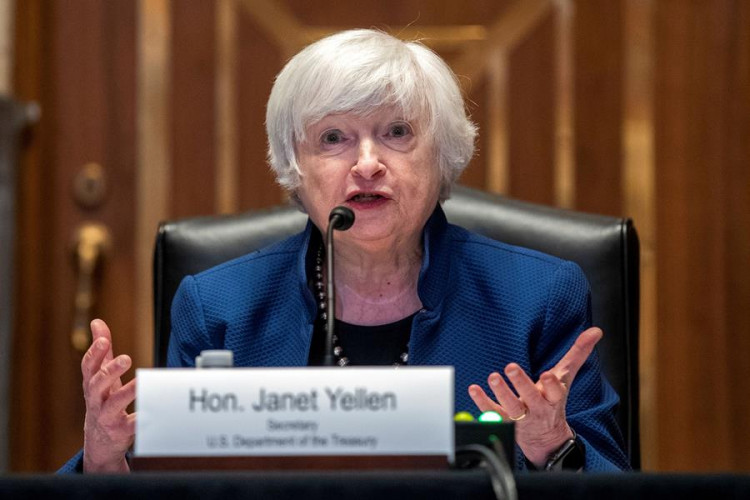Outgoing Treasury Secretary Janet Yellen acknowledged on Wednesday that the Biden administration's COVID-19 stimulus spending may have contributed "a little bit" to the inflation that has dogged the U.S. economy. However, she maintained that the primary driver of rising prices was the pandemic's disruption of global supply chains, which left industries struggling to meet demand.
"It may have contributed a little bit to the inflation, but by and large, inflation was a supply-side phenomenon," Yellen told CNBC's Money Movers in a rare admission by a Biden administration official. The comments come as Yellen prepares to step down from her role later this month, to be succeeded by hedge-fund executive Scott Bessent.
The $1.9 trillion COVID relief bill, signed into law by President Joe Biden, was critical to alleviating economic suffering, Yellen argued. The pandemic was "raging out of control" when Biden took office, with thousands dying each month and unemployment threatening livelihoods. "It was really important to spend the money to alleviate that suffering," she said.
Yellen, who has been a steady voice in Biden's economic team, highlighted the unique challenges of the pandemic's economic fallout. There were "simply huge supply chain problems," she explained, pointing to shortages of critical goods like semiconductors that disrupted industries ranging from automotive manufacturing to consumer electronics.
Critics have pointed to the federal government's ballooning deficit, which hit $1.8 trillion in the last fiscal year, as evidence of overreach in fiscal policy. However, Yellen countered that the Biden administration prioritized deficit reduction where feasible. She attributed some of the rising debt to higher interest rates, which have increased the cost of servicing existing debt. "But discretionary spending is at historically low levels," she added.
Yellen also expressed skepticism about the incoming administration's approach to fiscal policy. President-elect Donald Trump has proposed creating a Department of Government Efficiency, an advisory group co-led by Elon Musk, to identify and implement spending cuts. Yellen questioned the practicality of the initiative, noting the broad popularity of mandatory programs like Social Security, Medicare, and Medicaid. "It's hard to see how the math on that works," she said.
As Trump prepares to take office, uncertainty looms over economic policy. Yellen noted that while the labor market remains solid and consumer spending is robust, fiscal sustainability is critical. She warned against efforts to undercut IRS modernization efforts, which she said could result in an $800 billion hit to the deficit.
Reflecting on her tenure, Yellen highlighted progress made in stabilizing the economy despite challenges. The U.S. economy is doing very well, she said, citing strong consumer spending and investment even amid higher interest rates. However, she acknowledged that inflation has been slow to decline and emphasized the importance of maintaining a sustainable fiscal course.
Yellen's departure marks the end of a tenure shaped by unprecedented economic challenges, from the pandemic to geopolitical tensions. Her successor, Scott Bessent, brings extensive market experience, which Yellen said would be invaluable in managing the nation's financial security. "I'm pleased to see somebody with experience taking over, presumably if confirmed by the Senate," she remarked.
As for her own future, the 78-year-old economist plans to take a break before returning to the Brookings Institution for writing and reflection. "I'm going to take a vacation," she said with a smile.






